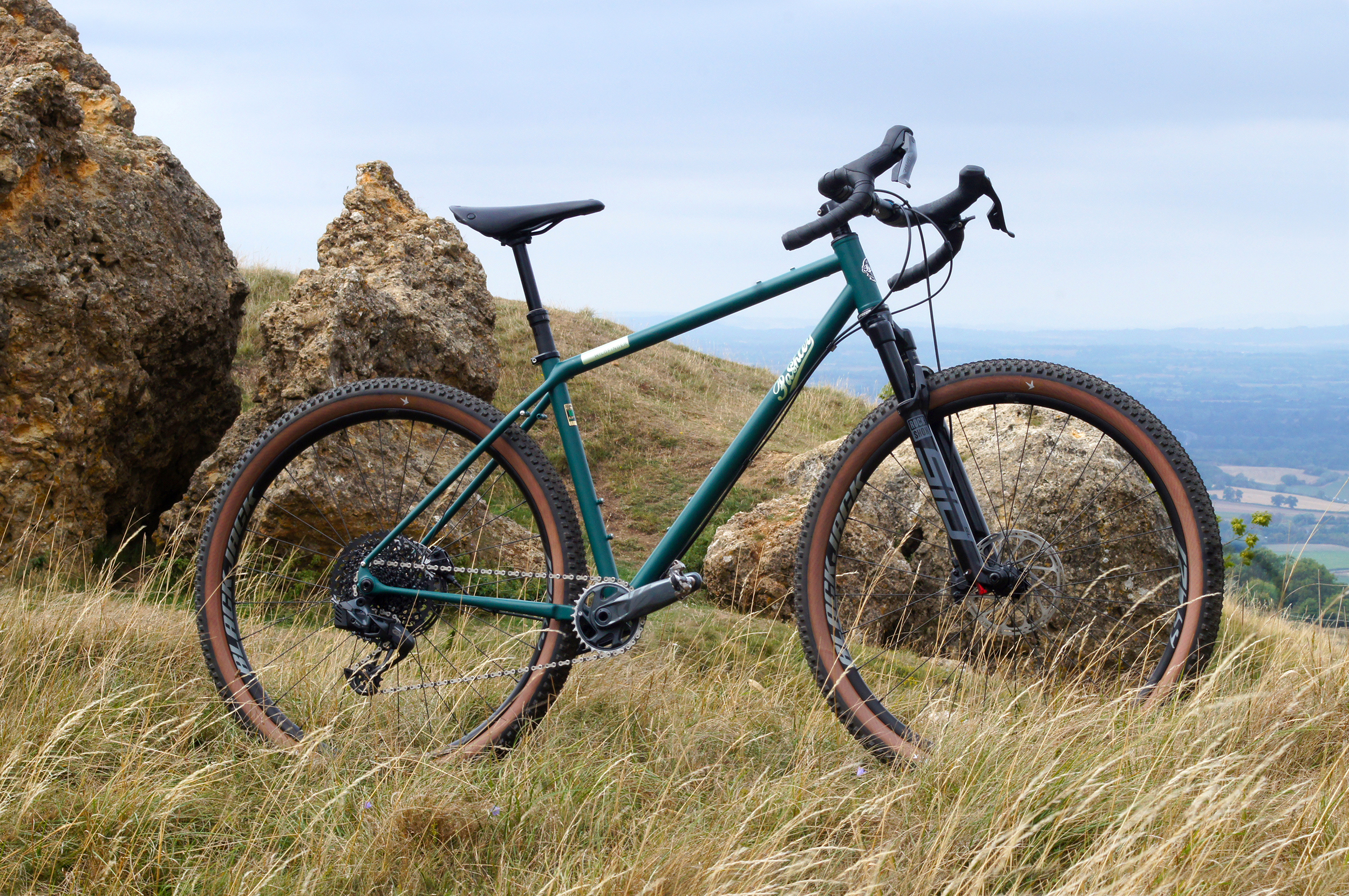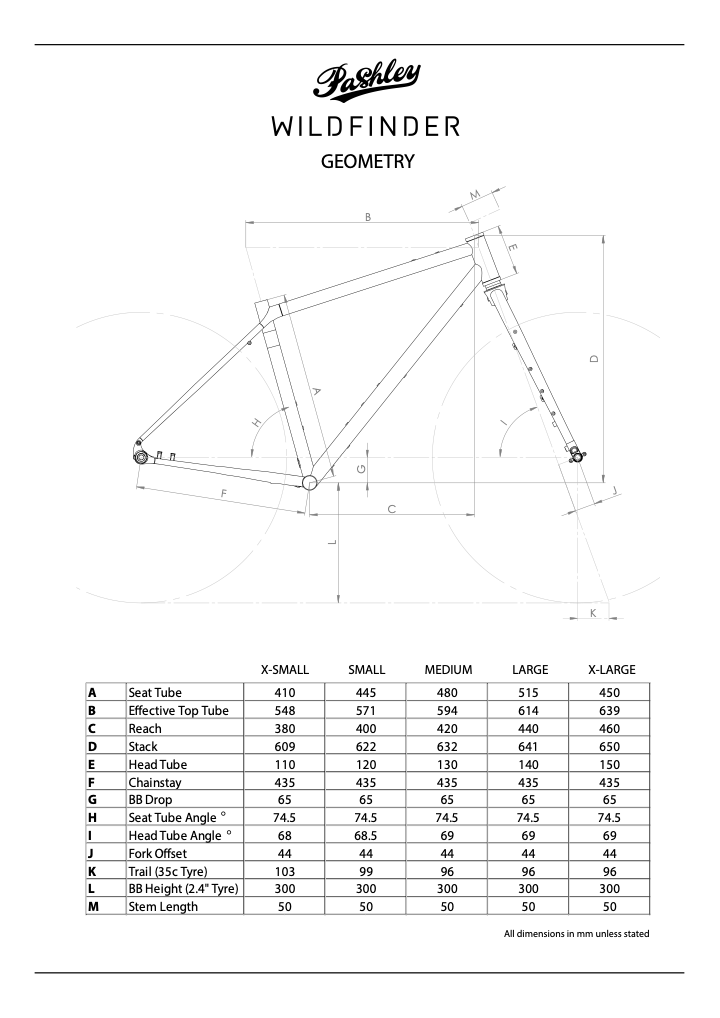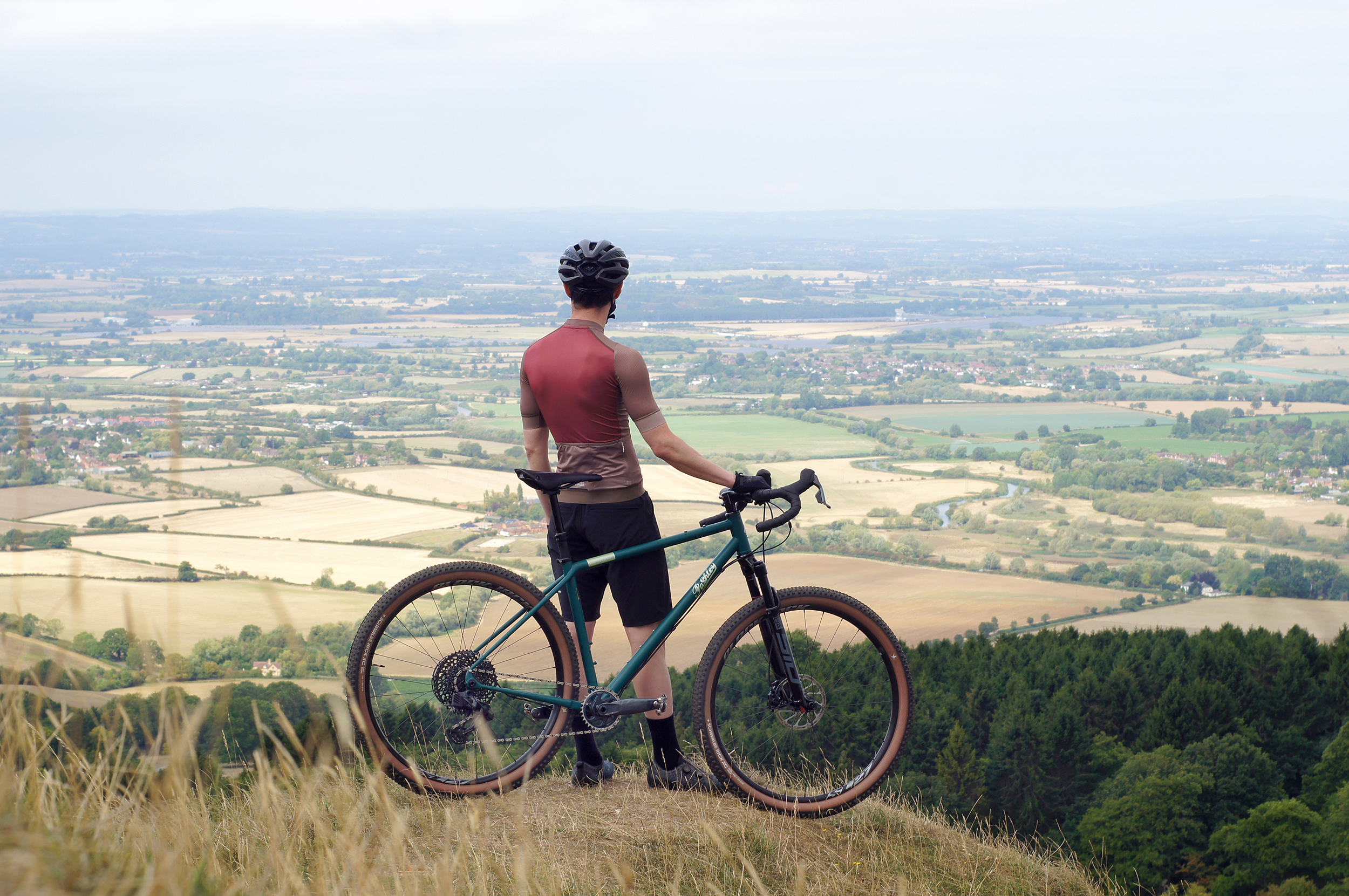The wildest gravel bike of 2025 just dropped and you'll never guess who made it
Pashley moved to gentile Stratford Upon Avon from Aston, the home of Black Sabbath. Is the new Wildfinder a return to their hard rock roots?


Pashley is known for making some stunning bikes, but to say they’re modern would have been, for the longest time, a bit of a stretch.
They're also not considered that rowdy, despite hailing from Aston originally, birth place of the recently departed rock legend, Ozzy Osborne, they're now located in the more fitting home of Stratford Upon Avon, where it's bikes have always been a little more, well, traditional.
Despite this, it has just unveiled a design so resolutely modern that it's hard to find a comparable model. The Pashley Wildfinder is a departure from tradition in terms of its geometry and the innovative 3D printed tech used in its manufacture. Yet, it also manages to exude an unmistakable ‘artisanal’ charm.
Scouring around for a geometrical equivalent in the gravel market quickly sees you crossing off a pretty comprehensive list, from Canyon’s Grizl to the BMC URS, the Argon Dark Matter and a slew of comparisons, none of which come that close to delivering what the Pashley aims to do.
If you’re more MTB adjacent than me, and you want a suspension-adjusted slack-wagon for the toughest gravel or the gnarliest tours, you might think Salsa, perhaps. Or even YT’s Szepter, but that is in fact more sensible than this new Pashley, on paper at least. I had to go right down the bomb-hole to find the Santa Cruz Stigmata and a few other mountain bike identifying brands to find a direct comparison to this new bike from hipster traditionalists, Pashley, with a firmly sub 70 degree head angle and long-ish rear end.
The other surprise is that unlike their Morgan collaboration, which, as beautiful as it is, is more costume jewellery than serious cycling kit, this bike is as serious as Ray Mears when it comes to outdoor readiness. This is essentially a mountain bike with drop bars.
Pashley says it’s “ready for all-day, all-year, all-weather and all-terrain fully equipped for adventure.”
The latest race content, interviews, features, reviews and expert buying guides, direct to your inbox!
And having seen the bike just last Friday whilst on a quick visit to their facility in Stratford Upon Avon, more famous for it’s association with the Bard of course, not high end bicycle making, I can’t argue with them.
This bike launch follows the Roadfinder and Pathfinder models, both impressive and similarly contemporary in the steel, and it’s the latest example of the new direction the British manufacturer is moving in. And having seen some of the fruits of their recent labours myself, and got a glimpse of their plans, it’s an inspiring direction indeed.
It’s exciting for British industry too. The bike uses steel from just down the road, from the famous Reynolds steel plant, and every bike is created from start to finish in-house by their team of what they – like many now – call ‘artisans’. I for one, have a slight artisanal lethargy, where for the last few years, every man and his dog is now artisanal, and that can mean very little. Or just little. It often simply means 'made by someone', which is no bad thing in this increasingly digital world, but hardly a recommendation.
At Pashley it seems to mean something tangible still. Every process I saw is handled in-house, by highly skilled framebuilders, fabricators and finishers. Melding the old with the new in ways that, until last Friday, I thought was only really possible in tiny bespoke workshops, or in the far east where they can replicate pretty much anything, tricky or otherwise, at scale. The gulf in quality in each case can be vast, and seldom lands as well as it does at Pashley.
The Pashley Wildfinder frame, crafted from Reynolds 853 DZB tubing, is fine-tuned for efficiency, comfort, and control over long distances and challenging terrain. This is not just a mountain bike with drop bars they say, "it's intended a versatile machine that opens up a world of cycling possibilities".
The fork is a Pashley designed and made Reynolds 853 bladed rigid fork. Geometry is suspension corrected to 100mm with the option of a RockShox SID SL suspension fork on all complete bikes and framesets, if you need it.
The frame is UDH “compliant” they say, made so with a neatly 3d printed drop-out assembly, and there’s a BSA bottom bracket and external cable routing. They do have T47 on show on other bikes, but here, where the cable run is external, for ease of maintenance, there’s really no need for the extra volume, or extra weld area a bigger bottom bracket might deliver in a bike like the Roadfinder, that’s clearly a conscious choice, and that’s refreshing to see.
Indeed, it’s not a mistake that I’m referring to this as a mountain bike with drop bars. That is of course, their intention, and they’ve given it the rather inelegant moniker of “grountain bike” internally. I think that should stay internal, much like the term “mullet” should have done, used to describe monstrous gearing options, when they crept in from mountain biking, too.
Additional 3D printed elements include the chainstay yoke to provide extra clearance for the large 29x2.4”/60mm tyres and up to 42T chainring and neat gear cable routing (for mechanical builds). The 3D printed dropouts allow for a 180mm rear brake discs which is essential for fully loaded mountain touring.
The frame and fork is equipped with multiple mounting points for frame bags, cages and racks, allowing the rider to accommodate any luggage set-up they want. The Reynolds 853 frame has also been fully e-coated for longevity. I saw the e-coat first hand, and it’s a phosphate style coating which is applied via an electroplating process, where it etches into the steel and provides a higher degree of corrosion resistance, especially useful inside the tubes where water and moisture might collect, but also a great base for the very smart looking powder coated finishes on offer.
Regards the e-coat, I know of only a handful of framebuilders who do this routinely. Many advise applying a coat of tool black or cavity wax from time to time, and while that’s usually enough, this approach is far superior and should mean your frame lasts for a very long time indeed.
The Wildfinder is available in 5 sizes (XS, S, M, L & XL) and 3 recommended builds – but as all Pashley frames are made-to-order you can choose from a number of options to create an individual frame with tailored spec if you choose to. Out of the box, Wildfinder is available in 2 colour options, Ember and Tempest or can be custom coloured.
Tempest is rather smart, Ember looks a little like the iron oxide colour finish on an RSJ, take that as you wish, but I thought it looked just right for the intentions of the bike.

Specifications
Pashley Wildfinder SHIMANO GRX, 34T 10-51T groupset, Blackjack SL27 wheelset,
Schwalbe Rick XC, Ritchey finishing kit and Brooks Cambium C15 saddle.
Pashley Wildfinder SRAM Rival GX AXS, 32T 10-50T groupset, Blackjack SL27 wheelset,
Schwalbe Rick XC tyres, Ritchey finishing kit and Brooks Cambium C15 saddle.
Pashley Wildfinder (flatbar) Shimano SLX groupset, Blackjack SL27 wheelset, Schwalbe
Rick XC tyres, Ritchey finishing kit and Brooks Cambium C15 saddle.
Both dropbar builds come with an option to swap in Rockshox SID SL fork and/or Pro Koryak 120mm dropper post to each build with a further opportunity to swap out the dropbar for aflat bar.
Pashley Wildfinder SHIMANO GRX from £2,995 / €3,895 / $4,495 / AUD$6,895
Pashley Wildfinder SRAM Rival GX AXS from £3,995 / €5,095 / $5,995 / AUD$9,195
Pashley Wildfinder Flatbar Shimano SLX from £2,795 / €3,595 / $4,195 / AUD$6,495
Pashley Wildfinder Frameset: £1,695 / €2,195 / $2,595 / AUD$3,895
All models in the Wildfinder collection have the following upgrade options;
Rockshox SID SL 100mm suspension fork: £549 / €695 / $795 / AUD$1,249
Pro Koryak 120mm dropper seat-post with remote: £249 / €349 / $379 / AUD$579
Custom Colour from £75 / €100 / $125 / AUD$170


Andy Carr is the tech editor at Cycling Weekly. He was founder of Spoon Customs, where for ten years, him and his team designed and built some of the world's most coveted custom bikes. The company also created Gun Control Custom Paint. Together the brands championed the highest standards in fit, fabrication and finishing.
Nowadays, Andy is based in Norfolk, where he loves riding almost anything with two-wheels. He was an alpine ride guide for a time, and gets back to the Southern Alps as often as possible.
You must confirm your public display name before commenting
Please logout and then login again, you will then be prompted to enter your display name.